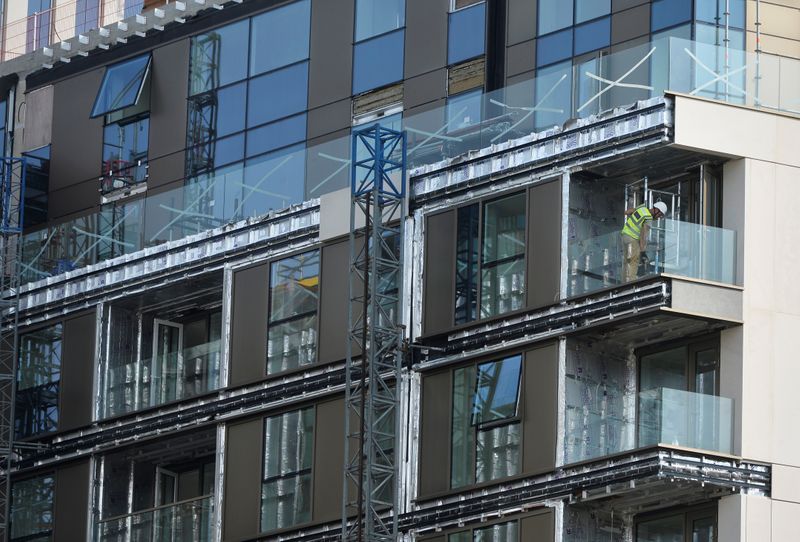LONDON (Reuters) - A measure of Britain's building industry had its strongest month-on-month improvement in almost two years in January as Prime Minister Boris Johnson's election win cleared short-term uncertainty overhanging the economy, a survey showed on Tuesday.
The IHS Markit/CIPS UK Construction Purchasing Managers' Index (PMI) rose to 48.4 from 44.4 in December, still showing a decline in output but rebounding by more than the Reuters poll forecast of 46.6 and reaching its highest level since May.
The last time the construction PMI rose by more in one month was in April 2018 when the sector was recovering from the "Beast from the East" winter storms earlier that year.
Some survey respondents said the reduction in political uncertainty after the Dec. 12 election might unlock new projects and boost client spending.
Johnson's win meant he was able to move ahead with taking Britain out of the EU on Jan. 31, whereas the opposition Labour Party proposed a second referendum on Brexit which would have extended the uncertainty for months.
Also, many business leaders were worried about Labour's plans to nationalize some industries and exert more state control over the economy.
The PMI showed construction companies were the most optimistic about their growth prospects since April 2018.
"Anecdotal evidence suggested that greater clarity in relation to Brexit following the general election had a positive impact on demand, especially in the residential development category," survey compiler IHS Markit said.
There have been other signs that Johnson's election victory has boosted business confidence in Britain, at least for now, before potentially tense talks on a new trade deal with the EU which must be settled before a deadline of Dec. 31.
Last week, the Bank of England held off from cutting interest rates while it waited to see if the improvement in sentiment translates into stronger economic growth.
It published a survey on Monday showing output in Britain's manufacturing sector emerged last month from its longest decline since the financial crisis, reaching the no-change level of 50.0 in January.
